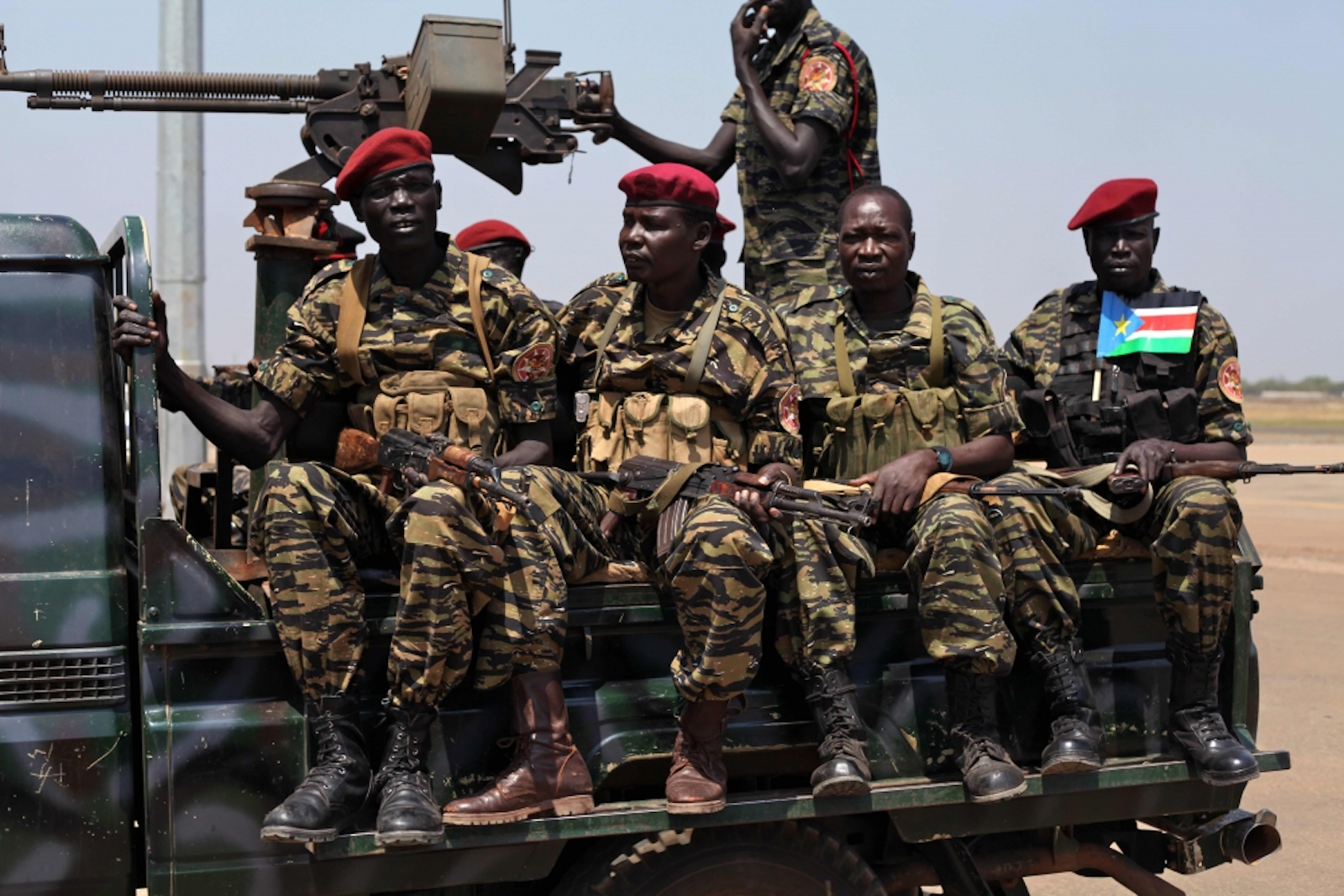
Africa Needs a New Approach
In August 2012, Secretary Hillary Clinton made a ten-day visit to nine African countries: Senegal, Uganda, South Sudan, Kenya, Malawi, South Africa, Nigeria, Ghana, and Benin. The common thread in Secretary Clinton’s remarks were the building blocks of the new “Presidential Policy Directive” (PPD) for sub-Saharan Africa, to strengthen democratic institutions; spur economic growth, trade, and investment; advance peace and security; and promote opportunity and development. African leaders, however, are skeptical since President Obama has been to sub-Saharan Africa only once, visiting Ghana in 2009. A February 2012, All Africa article noted, “To a large extent, there has been little change in US-Africa relations during the Obama administration, contrary to what many Africans had hoped. Furthermore, there has not been any major change in how Americans view Africa generally–tourists to the region and U.S. foreign direct investment to Africa remains low and declining relative to other countries – especially China…The support of democratic transitions and improved governance are at the core of Obama’s administration’s stated relations with Africa.”
Trade being a cornerstone of the PPD for Africa, with fifteen percent of the world’s population, it only represents 2.7 percent of the total GDP of the world. Five countries in sub-Saharan Africa out of forty-nine, represent 44 percent of the total GDP. South Africa and Nigeria account for over thirty-three percent of the economic market, yet most of the people still live at the poverty level, not sharing in the rich natural resources.
Sub-Saharan Africa is heavily dependent on the textile industry. The African Growth and Opportunity Act (AGOA) of 2000, was to allow export of textiles to the U.S., on a duty free basis; regardless of the fabric’s country of origin. The “third-country fabric” provision, was set to expire at the end of September 2012, and needed to be extended so the flow of goods could continue.
The extension was delayed for over a year by Congress. This lack of action resulted in U.S. apparel orders falling by 35 percent, costing thousands of jobs, since 95 percent of the apparel exports go to the United States. It was one Senator who held up this crucial legislation that would have benefited thousands of destitute African workers. President Obama should have weighed-in to show his support for Africa. Hence the message Secretary Clinton delivered during her visit, on the new PPD initiative for sub-Saharan Africa rang somewhat hollow.
Peace and Security, as noted in the PPD, are important pillars for African countries such as Mali, unsure about their future. Mali has been overrun by Al-Qaeda in the Islamic Maghreb (AQIM) and other Islamic extremists, taking control of more than half the country. The Islamists have expanded their operations across the Sahel, and north into Libya. The U.S. has known since 2003 that AQIM has been training with other Islamists in northern Mali. The Arab Spring emboldened AQIM to join Islamist militias to overthrow Muammar Gaddafi. In the destabilization that followed and lack of governance, AQIM and Ansar al-Sharia undertook the attacks against the U.S. Consulate in Benghazi on September 11, 2012.
In addition, large caches of arms flowed into northern Mali to the Islamists, who outgunned the Malian military. These extremists carried out brutal atrocities, causing almost 500,000 Malians to flee to neighboring countries. Mali has not been on our radar screen since the March 21, 2012 coup, by a dissident military leader, the result of Islamists taking control of the northern part of the country. The UN and U.S. should have supported action to subdue the Islamists and bring back stability and security to Mali. This fledgling democracy should have been the poster child for Secretary Clinton’s remarks on helping to build democratic institutions, peace, and security.
A stop in Mali would have sent a clear signal that the U. S. will support democratic regimes in their fight against radical Islamists. In addition, Secretary Clinton should have pressed for ECOWAS military action, as proposed under UNSC Resolution 2056, which has been held up for over four months. U.S. Africa Command (AFRICOM), familiar with the region, should help train these troops which would be in the U.S. security interests as well.
Today we have a new generation of Islamic extremists responsible for the attacks on the U.S. Consulate in Benghazi. The brutal mission was well planned, and not a spontaneous act. In a Senate Hearing that followed, frustrated Senators believed they were misled regarding the attacks on the consulate. The lawmakers noted that Secretary Clinton declined to provide any specifics about the attacks. However the next day, media sources disclosed details of the timelines regarding the attacks. Four days later in a New York Times article, Secretary Clinton said “there was a link between the al-Qaeda franchise in North Africa and the attacks on American diplomatic mission in Benghazi.” Libya’s President Mohamed Magariaf remarked the attacks were by al-Qaeda, further noting, “It was a preplanned act of terrorism directed against American citizens.” The original statements by Secretary Clinton and U.S. Ambassador to the UN Susan Rice, that the video Innocence of Muslims was a contributing factor to the attacks in Benghazi, based on evidence were false.
The State Department missed many signals of planned terrorist attacks going back to 1991 when Osama bin Laden was exiled to Sudan. There he planned a number of terrorist attacks against the United States, including the first World Trade Center bombing in 1993, the Khobar Towers bombing in Saudi Arabia in 1996 and the U.S. embassy bombings in Nairobi and Dar es Salaam in 1998. Due to CIA intelligence information of planned terrorist attacks against the U.S. embassy in Khartoum, the mission was closed in 1996. Sudan was then placed on the State Department’s list of states sponsoring terrorism. After that credible in-country intelligence information ceased and had to come from dissidents, and paid informants. Under Secretary of State Thomas Pickering made an effort to reopen the embassy, noting in a New York Times article, “that the embassy provided a listening post.” He was opposed by the State Department’s Assistant Secretary for African Affairs Susan Rice, saying “that the Khartoum government is evil incarnate…” U.S. Ambassador Timothy Carney wanted to continue engaging the Sudanese government in a diplomatic dialogue but instead was reassigned to another post.
President Omar Hassan Ahmed al-Bashir wanted the economic sanctions against Sudan lifted, and offered to extradite Osama bin Laden to the United States. According to Mansoor Ijaz, reportedly a negotiator between the U.S. and Sudan in 1996, he discussed with Sandy Berger the National Security Advisor and Assistant Secretary Susan Rice, President Bashir’s offer to which they never responded. This was a missed opportunity to capture Osama bin Laden and Ayman Zawahiri before they left Sudan; also al-Qaeda members Mamdouh Mahmud Salim, Wadih El-Hage, Fazul Abdullah Mohammed, and Saif Adel, all of whom were involved in the U.S. embassy bombings in 1998. Al-Qaeda continues to plan terrorist attacks, affiliated with a new generation of Islamic extremists, emboldened by Arab Spring, intent on instituting Islamic states. The U.S. stands in their way, so we can expect more terrorist attacks, for which the State Department may not be better prepared.
The United States needs to move forward on the promises made regarding the Presidential Policy Directive for sub-Saharan Africa. However, we need to face the security issues immediately such as in Mali, and across the Sahel region where Islamic extremists want to create Islamic states. Africa needs to become a priority for the Obama Administration. We need a proven leader to be the next Secretary of State. Ambassador Jon Huntsman Jr. is that person, having served as U.S. Ambassador to China, Governor of Utah, Deputy U.S. Trade Representative, U.S. Ambassador to Singapore, and Deputy Assistant Secretary of Commerce. He is a well respected, an experienced diplomat and businessman, and understands Africa’s issues. He can stand ‘toe-to-toe’ with China, in their quest to control Africa’s resources and trade—and speaks their language.
The United States needs to win back the respect and friendship enjoyed in Africa, over the past fifty years. We need to understand that our form of democracy may not take hold everywhere. So we must listen to what the countries want to achieve, and work with them, rather than lecture to them on our values, and exclude them from economic programs when not complying with our standards. At the same time, we need to reach out to the people, including those living in the villages. We need to expand USAID and the Peace Corps to help combat the abject poverty in many of these countries. Ambassador Huntsman is a proven leader, who knows how to work with members of Congress, many of whom have a myopic view of this faraway continent, and a limited understanding of its importance to our national security.
Africa’s security depends on good governance, trade, jobs, sustainable development, and healthcare concerns. If Africa is to succeed economically, we need to defeat the Islamic extremists in their quest to create Islamic states ruled under Sharia.
